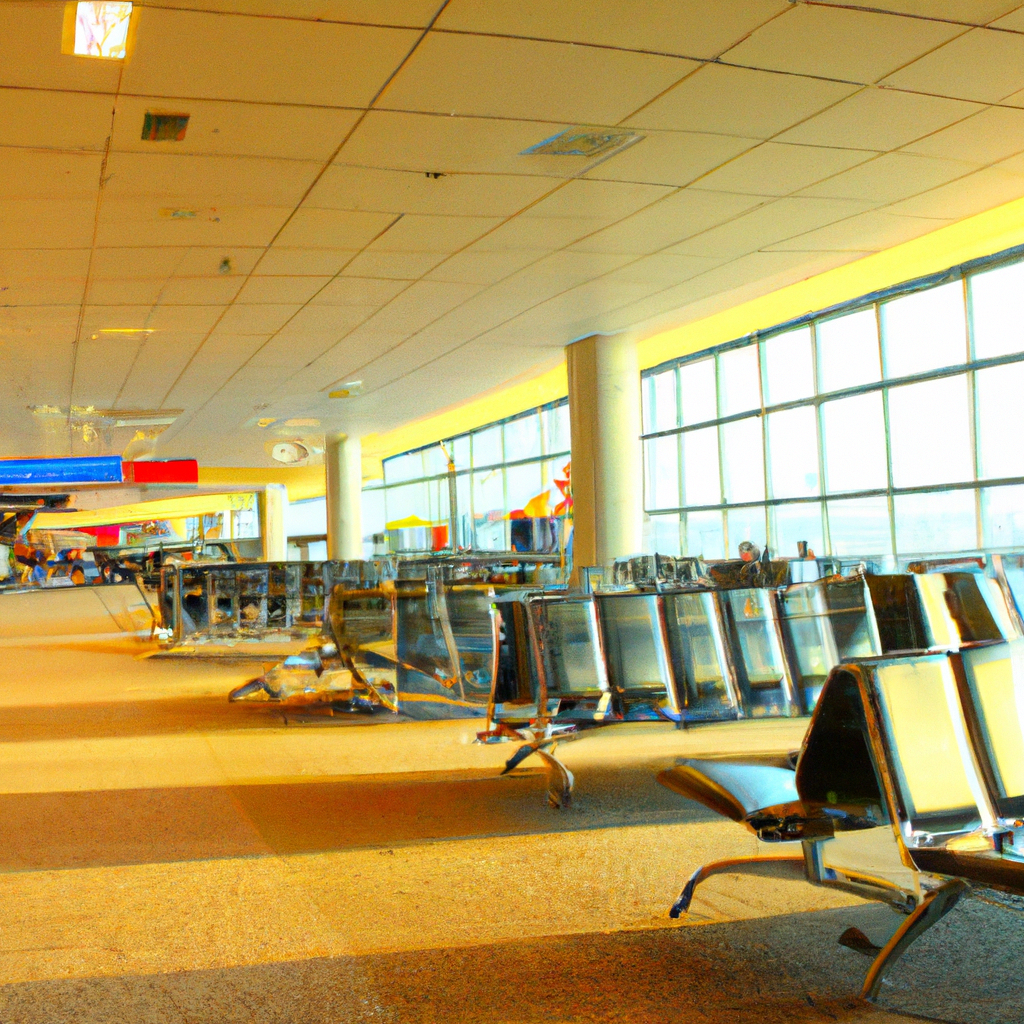
How Do I Handle Travel Delays Or Cancellations?
Travel delays and cancellations can be a frustrating and stressful experience for anyone. Whether it’s a delayed flight or a last-minute cancellation, it’s important to know how to handle these situations with ease. In this article, we will explore some valuable tips and strategies to help you navigate through travel delays and cancellations smoothly, ensuring a stress-free journey from start to finish. From knowing your rights as a passenger to staying informed and being prepared, we’ve got you covered. So, let’s dive in and discover how you can effectively handle any bumps in the travel road.
Understanding the Rights and Policies
Check the airline’s policies
When it comes to dealing with travel delays or cancellations, it’s important to first familiarize yourself with the policies of the airline you are flying with. Each airline may have different rules and regulations regarding delays and cancellations, so it’s crucial to understand what rights you have as a passenger. Take the time to visit the airline’s website or contact their customer service to gather all the necessary information.
Know your rights as a passenger
As a passenger, it’s essential to be aware of your rights in the event of travel delays or cancellations. Many countries have specific regulations in place to protect the rights of passengers, such as the European Union’s Regulation 261/2004. These regulations generally cover compensation for delays or cancellations caused by the airline, assistance with finding alternative flights or accommodations, and provisions for reimbursement of expenses incurred due to the delay or cancellation. Understanding your rights can help you navigate the situation with confidence.
Familiarize yourself with travel insurance
One way to prepare for potential travel delays or cancellations is to obtain travel insurance. Travel insurance can provide coverage for various travel-related issues, including trip interruptions, flight delays, and cancellations. Before purchasing travel insurance, make sure to thoroughly read and understand the policy to know what is covered and what is not. Having travel insurance can provide you with peace of mind knowing that you have financial protection in case of unexpected disruptions to your travel plans.
Preparing for Potential Delays or Cancellations
Allow for extra travel time
To minimize stress and anxiety caused by travel delays or cancellations, it’s wise to build extra travel time into your itinerary. Consider adding a buffer of a few hours between connecting flights or give yourself plenty of time to get to the airport. By allowing for extra travel time, you give yourself a better chance of making alternative arrangements if your initial travel plans are disrupted. It’s always better to be safe than sorry when it comes to travel.
Pack essential items in your carry-on
When faced with travel delays or cancellations, your checked luggage may not always be readily accessible. That’s why it’s crucial to pack essential items in your carry-on bag. Include items like a change of clothes, toiletries, medication, electronic devices, chargers, and any necessary travel documents. By packing these essentials in your carry-on, you’ll have everything you need to be comfortable during unforeseen delays or cancellations.
Keep important documents accessible
It’s important to keep all your important travel documents easily accessible in case of travel disruptions. This includes your passport, ID, boarding passes, travel insurance policy, and any other necessary documents. Having these documents readily available can help expedite the process of rebooking flights or seeking assistance from airline staff. Consider storing these documents in a secure, easily accessible pocket or organizer within your carry-on bag.
Dealing with Delays
Stay informed about the delay
When facing a travel delay, it’s crucial to stay informed about the situation. Keep an eye on airport monitors for updates on your flight’s status and listen for any announcements made by airline staff. If possible, sign up for flight notifications through the airline’s app or website to receive real-time updates on any changes to your flight schedule. By staying informed, you can better plan your next steps and remain proactive in finding a resolution to the delay.
Contact the airline for assistance
If you find yourself dealing with a delay, don’t hesitate to contact the airline for assistance. Use the provided customer service number or speak to an airline representative at the airport. They can provide you with information about the delay, guide you through rebooking options, and answer any questions or concerns you may have. Airlines are typically well-equipped to handle delays and are there to assist you in finding the best solution given the circumstances.
Consider alternative transportation options
In some cases, it may be worth exploring alternative transportation options if your flight is significantly delayed or canceled. Depending on the distance and availability, you may consider taking a train, bus, or renting a car to reach your destination. Be sure to weigh the costs and practicality of each option before making a decision. Additionally, check if the airline is willing to endorse your ticket to another carrier, which could save you time and money.
Responding to Flight Cancellations
Contact the airline immediately
If your flight gets canceled, it’s important to contact the airline immediately to understand the options available to you. Most airlines have dedicated customer service lines specifically for handling flight cancellations. By reaching out right away, you increase your chances of securing alternative travel arrangements or receiving compensation if applicable. Remember to remain calm and polite when speaking with airline representatives, as they are more likely to assist you in finding a suitable solution.
Explore rebooking or refund options
When faced with a flight cancellation, one of the first things you should consider is whether you prefer to be rebooked on a later flight or to request a refund. Airlines will generally provide you with the option to be rebooked on their next available flight, but if that doesn’t suit your plans, you can explore other flight options or ask for a refund. Keep in mind that refund policies may vary depending on the airline and ticket type.
Seek compensation if necessary
Depending on the circumstances surrounding your flight cancellation, you may be entitled to compensation under certain regulations or airline policies. Common causes for compensation could include delays or cancellations within the airline’s control, such as mechanical issues or crew problems. Be sure to check the specific regulations or policies that apply to your situation and submit a claim for compensation if you believe you are eligible. Keep any relevant documentation as evidence to support your claim.
Navigating Airport Procedures
Follow instructions from airport staff
During times of travel delays or cancellations, airports can become chaotic and crowded. It’s important to stay calm and follow the instructions of airport staff. They are trained to handle these situations and can provide guidance on rebooking, assistance, or any necessary procedures. By cooperating with airport staff, you can navigate the airport procedures more smoothly and ensure that you receive the help you need.
Queue up for rebooking or assistance
Once you have made contact with the airline or airport staff and determined the necessary steps to take, be prepared to queue up for rebooking or assistance. Depending on the size of the airport and the number of affected passengers, wait times may vary. Stay patient and respectful of others in line and have all your necessary documents and information readily available. This will help expedite the process and ensure that you receive the assistance you require.
Arrange for alternative accommodations if required
In some cases, flight delays or cancellations may result in the need for alternative accommodations, especially if you are stranded overnight. If this happens, it’s important to proactively seek assistance from the airline or airport staff. They can help you secure a hotel room or provide vouchers for accommodation if required. Remember to keep any receipts or documentation related to your alternative accommodations to facilitate potential reimbursement claims later on.
Managing Accommodations and Expenses
Request hotel and meal vouchers
If you find yourself stranded due to a flight delay or cancellation, it’s worth inquiring about hotel and meal vouchers from the airline. Many airlines offer these vouchers as a form of compensation for the inconvenience caused. Even if vouchers are not automatically offered, politely ask if they are available. These vouchers can help alleviate the financial burden of unexpected expenses and provide you with a comfortable place to stay and meals during the delay.
Keep track of additional expenses
During travel delays or cancellations, you may incur additional expenses that are not covered by vouchers or compensation offered by the airline. It’s important to keep track of these expenses, such as transportation costs, meals, or any necessary purchases. Retain all relevant receipts as proof of the expenses incurred. This will be useful when filing reimbursement claims with the airline or your travel insurance provider.
Submit reimbursement claims if applicable
If your airline or travel insurance policy allows for reimbursement of expenses due to travel delays or cancellations, it’s important to submit your claims promptly. Make sure to gather all necessary documentation, such as receipts, boarding passes, and any other supporting evidence required. Follow the specific instructions provided by the airline or insurance provider to ensure a smooth and efficient reimbursement process. Be patient, as the reimbursement process may take some time.
Utilizing Travel Insurance
Consult your insurance policy
Travel insurance can be a valuable asset when dealing with travel delays or cancellations. Take the time to review your insurance policy and understand what is covered under your specific plan. Familiarize yourself with any limitations, exclusions, or requirements for filing a claim. Knowing your coverage beforehand will help you navigate the claims process more effectively if you need to seek compensation for expenses incurred due to delays or cancellations.
File a claim for covered expenses
If your travel insurance policy covers expenses related to travel delays or cancellations, you may need to file a claim to receive reimbursement. Check the documentation requirements outlined in your policy and gather all necessary information and receipts. Be sure to submit your claim in a timely manner to expedite the processing time. Keep copies of all submitted documents and follow up with the insurance provider if needed.







